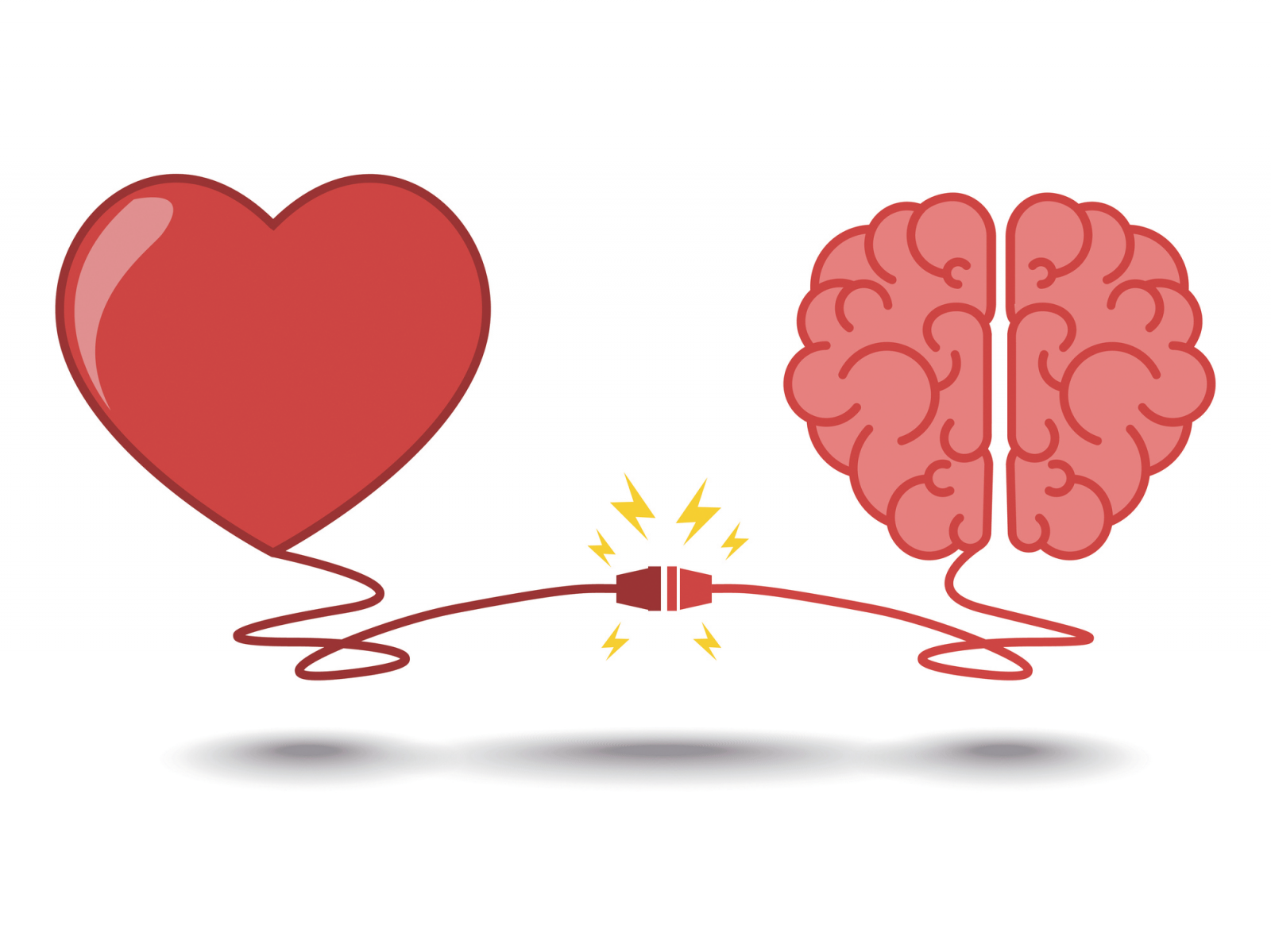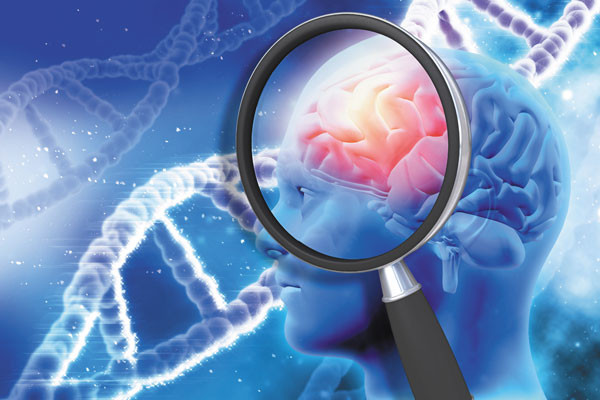
Can white noise really help you sleep better?

Celiac disease: Exploring four myths

What is prostatitis and how is it treated?

What is Cushing syndrome?

Exercises to relieve joint pain

Think your child has ADHD? What your pediatrician can do

Foam roller: Could you benefit from this massage tool?

Stepping up activity if winter slowed you down

Common causes of cloudy urine

Dragon fruit: How to enjoy this antioxidant-rich fruit
Alzheimer's Disease Archive
Articles
Blood markers for heart disease linked to microscopic strokes
Research we're watching
Aging brains often show signs of microscopic strokes, which result from damage to tiny blood vessels within the brain. Those that occur in the brain's outermost layer — called cortical cerebral microinfarcts (CMIs) — usually don't cause any symptoms. But they are more common in autopsies of people diagnosed with dementia. Now, new research suggests a link between blood markers for early heart disease and CMIs.
The study, published online Feb. 6, 2017, by JAMA Neurology, included 243 people who attended a memory clinic. All had brain scans to check for CMIs and blood tests that measured two substances associated with early signs of heart damage. People who had CMIs (nearly 29% of the participants) were much more likely to have heart disease than those who didn't have CMIs. Higher levels of both substances associated with heart damage were also linked to CMIs — even when the researchers left out people who already had obvious symptoms of heart disease.
Androgen deprivation therapy may not increase risk of Alzheimer’s disease after all
In the journals
A study of almost 31,000 men whose prostate cancer had not spread found that the use of androgen deprivation therapy (ADT) was not associated with a higher risk of Alzheimer's disease. This counters previous studies that suggested a possible link. The results were published in the January 2017 Journal of Clinical Oncology.
ADT is used in prostate cancer treatment to eliminate testosterone, since the hormone can fuel the disease. Testosterone levels also are traditionally lower in men with Alzheimer's compared with control groups, which suggests there may be a connection between lowering testosterone and an increased risk of Alzheimer's. Previous studies that have explored this connection found that a low testosterone level caused by ADT was associated with a higher probability of developing Alzheimer's. But these studies often covered a shorter time period — for instance, one year or less — and it is doubtful that men were on ADT long enough to cause Alzheimer's.
Walking movements may predict memory decline
In the journals
Previous research has suggested that slow walking speed might predict cognitive decline, but a recent study suggests how you walk also may provide clues. The results were published online Nov. 19, 2016, by the Journal of Alzheimer's Disease.
Researchers examined medical records of more than 3,400 people ages 70 to 89 who had completed both a neurological examination and gait analysis to measure walking movements like stride length, step count, cadence, stance time, and arm swings.
Study suggests late-life activities reduce the risk of mild cognitive impairment
Research we're watching
Mentally engaging activities have been long been promoted for staving off dementia, but there isn't a lot of information about whether doing them late in life is effective in preventing mild cognitive impairment (MCI), a precursor of dementia. To help fill that gap, researchers from the Mayo Clinic Study of Aging followed 956 men and 973 women ages 70 or older who had normal scores on mental function tests. The participants answered periodic questionnaires detailing whether and how often they read books, did craft projects, used a computer, played games, and engaged in social activities like going out to movies and plays. They also underwent neurologic exams and completed tests to assess mental function. Over an average of four years, 456 participants developed mild cognitive impairment.
When the researchers analyzed the results, they found that playing games, doing craft projects, using a computer, and engaging in social activities were associated with a significant reduction in the risk of developing mild cognitive impairment.
Another way to think about dementia
Vascular dementia is a less prevalent type of memory loss that nonetheless affects many older men.
Image: Mike Watson Images/Thinkstock
While Alzheimer's disease continues to be the most recognized type of dementia, older men should also be mindful about the second most common: vascular dementia.
In vascular dementia, memory problems result from damage to large and small blood vessels in the brain. It develops when cholesterol-clogged blood vessels can't deliver enough oxygen to the brain. Small blockages deprive some brain cells of oxygen, which causes a series of small strokes that kill brain cells. This can lead to episodes of confusion, slurred speech, and problems thinking or remembering.
Loneliness may be a marker for Alzheimer’s disease
Older adults who report feeling lonely had a greater risk of testing positive for high amyloid levels in the brain, a marker of Alzheimer’s disease, according to research from the Harvard Aging Brain Study.
Heart disease and brain health: Looking at the links
Poor blood flow in the brain can chip away at thinking skills.
Image: RootsBeforeBranches/Thinkstock
Just like in the rest of your body, advancing years can take a toll on your brain function. Much of this slowing down is predictable and can be chalked up to normal aging. However, when thinking skills become increasingly fuzzy and forgetfulness gets to be a way of life, an early form of dementia known as mild cognitive impairment may be setting in (see "Normal aging vs. mild cognitive impairment").
Often, the first reaction is to attribute these changes to the beginning of Alzheimer's disease. But blood flow problems may be to blame, as well. "An estimated one-third of all cases of dementia, including those identified as Alzheimer's, can be attributed to vascular factors," says Dr. Albert Hofman, chair of the department of epidemiology at the Harvard T.H. Chan School of Public Health.
Over-the-counter drugs may be linked to memory decline
A class of drugs commonly used in over-the-counter and prescription drugs to treat such problems as insomnia, diarrhea, high blood pressure, depression, and urinary incontinence may be linked to cognitive impairment. Scientists believe the drugs block the neurotransmitter acetylcholine that helps process information, which scientists believe is responsible for the effect.
The genetic link between Alzheimer's and heart disease
Knowing you have a gene variant that may raise your risk can be distressing. But new research reveals a silver lining.
A particular gene variant that affects cholesterol levels in the blood may influence a person’s risk of both Alzheimer’s and heart disease.
Image: kirstyparueter/Thinkstock
Alzheimer's disease strikes fear in people's hearts, as it gradually erodes a person's ability to remember, think, and learn. There is no cure, and available treatments alleviate symptoms only temporarily. Yet while an estimated 5.3 million Americans currently have Alzheimer's disease, this brain disorder is far less common than heart disease. More than 85 million people in the United States are living with some form of cardiovascular disease or the aftereffects of stroke, which also affects brain function.
Ask the Doctor: Can we prevent this type of dementia?
Q. Do you think we'll ever be able to prevent Alzheimer's disease?
A. I do. Not because I'm an optimist (though I am) but because of the results of research in the past 25 years.

Can white noise really help you sleep better?

Celiac disease: Exploring four myths

What is prostatitis and how is it treated?

What is Cushing syndrome?

Exercises to relieve joint pain

Think your child has ADHD? What your pediatrician can do

Foam roller: Could you benefit from this massage tool?

Stepping up activity if winter slowed you down

Common causes of cloudy urine

Dragon fruit: How to enjoy this antioxidant-rich fruit
Free Healthbeat Signup
Get the latest in health news delivered to your inbox!
Sign Up






